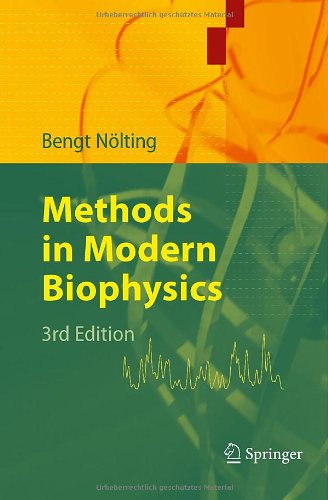

Most ebook files are in PDF format, so you can easily read them using various software such as Foxit Reader or directly on the Google Chrome browser.
Some ebook files are released by publishers in other formats such as .awz, .mobi, .epub, .fb2, etc. You may need to install specific software to read these formats on mobile/PC, such as Calibre.
Please read the tutorial at this link: https://ebookbell.com/faq
We offer FREE conversion to the popular formats you request; however, this may take some time. Therefore, right after payment, please email us, and we will try to provide the service as quickly as possible.
For some exceptional file formats or broken links (if any), please refrain from opening any disputes. Instead, email us first, and we will try to assist within a maximum of 6 hours.
EbookBell Team

5.0
80 reviewsIncorporating recent dramatic advances, this textbook presents a fresh and timely introduction to modern biophysical methods. An array of new, faster and higher-power biophysical methods now enables scientists to examine the mysteries of life at a molecular level. This innovative text surveys and explains the ten key biophysical methods, including those related to biophysical nanotechnology, scanning probe microscopy, X-ray crystallography, ion mobility spectrometry, mass spectrometry, proteomics, and protein folding and structure. Incorporating much information previously unavailable in tutorial form, Nölting employs worked examples and about 270 illustrations to fully detail the techniques and their underlying mechanisms. Methods in Modern Biophysics is written for advanced undergraduate and graduate students, postdocs, researchers, lecturers, and professors in biophysics, biochemistry and related fields.
Special features in the 3rd edition: Introduces rapid partial protein ladder sequencing - an important method for fast and highly sensitive identification of proteins, describes the determination of interaction surfaces in protein complexes by mass spectrometric mapping of binding of chemical linkers - a method to support the high-resolution structural analysis of large macromolecular assemblies.